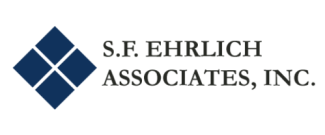
Stan's World - A Planner's Gonna Plan
June 30, 2020
You’re welcome to call me a skeptic (or worse) but I fall into the camp that says we’ll be battling a second wave of COVID-19 when it revisits us in the Northeast at some point in the fall. To make matters worse, I also believe the lockdown for the second round will occur faster (and possibly feel harsher) than it did in Round 1. We’re just beginning to enjoy a modicum of freedom after almost four months, and removing those freedoms will sting.
Seven weeks ago, when writing the last Stan’s World, I wrote about lessons I learned mid-COVID that I hoped to improve upon if we really do move into the so-called second wave. While New Jersey has done an incredible job in flattening and reducing the curve vis-à-vis hospitalized COVID patients, there continue to be hundreds of fellow Jerseyans who are being diagnosed and hospitalized every day. Even while writing about a second wave, the battle against the first wave is still being fought.
Since opening this financial planning practice in 1996, I’ve always seen myself as more than just a financial advisor. When I write about things we’re doing to stay safe (and fed) during these difficult times, I want you to think about what else you might consider doing to stay safe. We’ve heard from clients who experienced COVID-19, and I’d rather not hear any more of those unpleasant stories. (Sadly, I even knew someone who passed from it.)
With that introduction, here are the steps we’ve taken to protect us even while our state moves through its reopening phases. Similar to buying batteries to power your flashlights if weather forecasters predict a hurricane is on the way, taking steps to protect yourself and your family should a possible second wave develop doesn’t make us preppers…it makes us planners.
- Supplies stockpiled: When the pandemic began, we experienced some difficulty obtaining numerous products from our local supermarket, not to mention issues finding time slots for delivery or curbside pickup. (It was like trying to buy Cabbage Patch dolls, but every day. If you’re younger than me, Google it. If you’re my age or older, I can see you nodding your head.) As stores have mostly restocked their shelves with paper towels, toilet paper, tomato sauce, pasta, hand wipes, face masks, et al., so have we. (While I would probably be content living on cereal and canned tuna fish for a while, doing so would probably end a 48-year marriage.) The suggestion is to have a few of those hard-to-get items in your pantry should spot shortages reoccur. (Our daughter in Los Angeles advised us the other day that spot shortages of certain products is occurring now.)
- Still shopping from home: I know that many will find this difficult to believe, but I have yet to return to a supermarket. While I keep telling everyone that I will soon, there just hasn’t been a reason to do so. Frankly, as more and more people start to go out, it’s easier than ever to shop from home, and our local ShopRite has given new meaning to the word convenience. I’m able to log into the website, order anything they have in store, quickly schedule a convenient time slot, drive over at the designated hour, pop the tailgate, and drive away loaded with bags of food. (Yes, I’ve heard all the arguments about not wanting others to touch your fruits and vegetables. But how exactly did your melon got on the shelf?) If shopping from home is available to you, why not consider it?
- Freezer purchased: I’ve previously suggested that clients consider buying a freezer to store some items that were previously in shortage (think chicken and pork). If you’re considering a purchase, be forewarned there’s probably a three-month backlog. Should you buy one, don’t forget to hire an electrician so that when the freezer is delivered, and you run a long extension cord to plug it in, everything else in your house won’t turn off.
- Schedule those doctor visits: Going to see my dentist was a new experience. Sign a COVID release form from home; call the office from the parking lot; answer a series of questions asked by a PPE-gowned employee while standing next to my car; get escorted directly to the dental chair. If you live in an area where cases are down and the window to get out and about is open, consider making appointments for every doctor you may need to visit within the next few months. (Aside from doctors, schedule any services you may need completed in your home while you’re still comfortable doing so.)
- Vacation shelved: For the past 20 years, we’ve taken the family on vacation to Rehoboth Beach, DE. The days consist of biking around town, going to the beach, shopping for donuts, food, ice cream, chips, and more donuts, and walking downtown each night. Knowing that there will be crowds downtown comprised of people from many states, and knowing that the beaches can get crowded, we sadly concluded that taking everyone on vacation after we all have been so careful about social distancing was probably the most prudent thing to do. If you have a trip scheduled, consider all the risks and how you’ll deal with them before loading up the car. (NOTE: As I write, Delaware is reporting its highest number of cases in more than a month.)
- Volunteerism: I’ve previously written about feeling helpless, seeing the long lines of cars filled with people seeking groceries from food pantries. Being in the most vulnerable age group caused my wife and me to make the difficult decision not to volunteer for the food pantry and soup kitchen where we have previously worked. While making donations helped our psyche, I missed the fulfillment I got from stocking shelves and filling bags for food distribution. Absent the ability to hand out bags of food in a COVID-ravaged community where the pantry is located, I got involved with the same non-profit to start a program to offer financial counseling to those who have lost their jobs or had a loss of income. We’re hoping to help a lot of people, which will give me the opportunity to contribute from afar. (Also working from afar for the same agency, Pearl calls elderly seniors who have been shut-in during these past few months.) If you’re interested, perhaps a religious organization or non-profit has volunteer opportunities. (NOTE: If you’re volunteering from afar, those opportunities don’t have to be in your community or even the same state.)
- You read it here first: When the time comes for us to meet again (in person), don’t set your GPS to drive to the old office. No, we’re not permanently moving into the temporary digs at my house, but John and I have decided not to return to our offices at 37 Elm Street in Westfield. We concluded that communal bathrooms and sharing a narrow hallway with neighbors who we minimally know are not conducive to social distancing during a pandemic (not to mention that the building is a little dated). Rather, we’re in the process of trying to secure space that will not only be more self-contained but hopefully more accessible. (A parking spot or two would be a true luxury.) While we probably won’t have face-to-face meetings with clients anytime soon, we hope to be settled in when we’re all ready to meet again. For purposes of reaching us, thanks to mail forwarding, you can continue using the old mailing address for now; whenever we get a new mailing address, we’ll certainly let everyone know with a more formal announcement.

